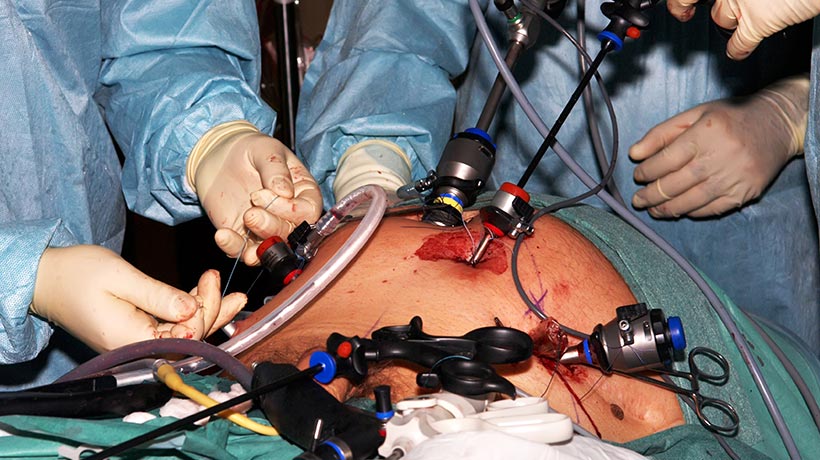





An obesity surgeon, also known as a bariatric surgeon, specializes in performing surgical procedures to help patients manage obesity and achieve weight loss. Obesity surgery, also called bariatric surgery, is considered when other weight loss methods such as diet, exercise, and medications have not been successful in achieving significant and sustained weight loss.
Book AppointmentI. Role and Responsibilities: An obesity surgeon is a medical professional who specializes in the surgical treatment of obesity and related health conditions. Their primary role is to evaluate patients for surgery, recommend appropriate procedures, and perform the surgeries.
II. Types of Procedures: There are several types of bariatric surgery, each with its benefits and risks. The most common procedures include gastric bypass, gastric sleeve (sleeve gastrectomy), adjustable gastric banding (lap band), and biliopancreatic diversion with duodenal switch (BPD/DS). These surgeries work by restricting the amount of food the stomach can hold or reducing nutrient absorption.
III. Patient Evaluation: Before recommending surgery, an obesity surgeon conducts a thorough evaluation of the patient's medical history, current health status, and weight loss history. They also assess the patient's readiness and commitment to lifestyle changes required after surgery.
IV. Educating Patients: Obesity surgeons play a crucial role in educating patients about the risks, benefits, and expected outcomes of bariatric surgery. They help patients understand the lifestyle changes they need to adopt before and after the procedure to ensure long-term success.
V. Surgical Expertise: Obesity surgery is complex and requires a high level of surgical expertise. Surgeons must stay up-to-date with the latest techniques and advancements in the field to provide the best care to their patients.
VI. Collaboration with a Multidisciplinary Team: Obesity surgeons often work in collaboration with a multidisciplinary team, including dietitians, psychologists, and physical therapists, to support patients before and after surgery. This team-based approach helps patients achieve better outcomes and maintain their weight loss.
VII. Post-Surgery Care: Following bariatric surgery, patients require ongoing monitoring and support. Obesity surgeons schedule regular follow-up appointments to assess weight loss progress, manage any complications, and provide guidance on diet and exercise.
VIII. Impact on Health: Bariatric surgery not only helps with weight loss but can also lead to significant improvements in obesity-related health conditions like type 2 diabetes, hypertension, sleep apnea, and joint pain.
IX. Risks and consequences: Bariatric surgery has some risks and potential consequences, just like any surgical operation. Obesity surgeons must discuss these risks with patients to ensure they make an informed decision.
X. Continuing Research: As medical science advances, ongoing research in the field of bariatric surgery helps improve surgical techniques, reduce risks, and enhance patient outcomes. Obesity surgeons often contribute to this research through publications and participation in clinical trials.
Remember, bariatric surgery is not a one-size-fits-all solution, and it is essential for patients to consult with a qualified obesity surgeon to determine if surgery is the right option for their specific situation. The decision to undergo bariatric surgery should always be made after careful consideration and in conjunction with medical professionals. The services of Paarasmani Hospital are available to the nearby communities of Magarpatta City, Hadapsar Gadital, Amanora, Kharadi, BT Kawade Road, Handewadi, Wanowrie, Manjri, and Phursungi.